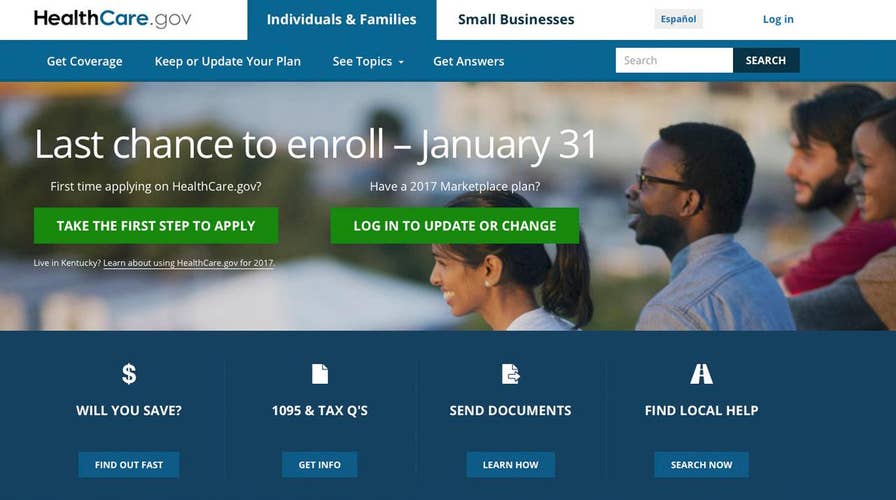Insurance companies warn they could withdraw from ObamaCare
Peter Doocy reports from Washington
A new poll released Wednesday adds a new element for congressional Republicans to consider about their repeal-and-replace approach to former-President Obama’s cornerstone legislation: more American voters appear to be support the law.
According to a Politico/Morning Consult poll, there is an even split between registered voters who support the law and those who oppose it. Currently, 45 percent approve of the legislation compared to a poll back in January—before President Trump took office—that showed 41 percent of voters approved of the bill.
VIDEO: UPROAR AT TOWN HALLS AIMED AT REPUBLICANS OVER OBAMACARE
Kyle Dropp, the co-founder of Morning Consult, told Politico that the closer ObamaCare comes to the chopping block, its weekly poll “has shown an uptick in the law’s popularity.”
The only item in the poll that remained unpopular was the individual mandate.
Trump, who said during his campaign that he will replace the law with “something far better,” has tried to calm critics who say Republicans are divided on the issue.
Trump has been edging away from the promise to quickly eliminate the entire law. Still, annulling its taxes would be a partial victory and is irresistible for many GOP lawmakers and the conservative voters at the core of their support.
"We should do full repeal," said Rep. Jim Jordan, R-Ohio, a leading House conservative. "And full repeal means not taking the taxes" from people.
DR. MARC SIEGEL'S ADVICE FOR THE OBAMACARE TRANSITION
Despite the law’s apparent increase in popularity, just last week the CEO of Aetna said in an interview that the law is in a “death spiral” because younger, healthier people have dropped out while premiums continue to climb.
Under the 2010 law, people are required to have health coverage or risk fines from the IRS -- a penalty usually deducted from a taxpayer's refund. That underlying requirement remains on the books, and taxpayers are still legally obligated to comply, the IRS said.
But the agency is changing its approach to enforcement. Originally, the IRS had planned to start rejecting returns this year if a taxpayer failed to indicate whether he or she had coverage. Now the IRS says it will keep processing such returns, as it has in the past.
Many of the law's supporters consider the coverage requirement essential for nudging younger, healthy people into the insurance pool to keep premiums in check.





